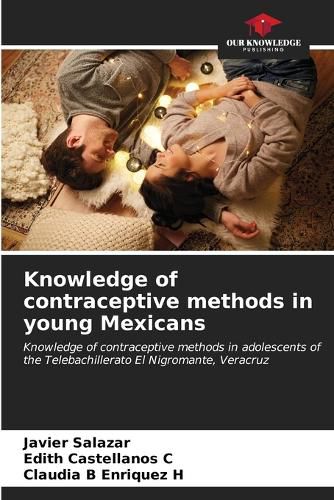Knowledge of contraceptive methods in young Mexicans
Javier Salazar, Edith Castellanos C, Claudia B Enriquez H

Knowledge of contraceptive methods in young Mexicans
Javier Salazar, Edith Castellanos C, Claudia B Enriquez H
The World Health Organization (2016) defines adolescence as the period of human growth and development that occurs after childhood and before adulthood, between 10 and 19 years of age, and constitutes it as a stage of considerable risks, among which unprotected sex stands out, adding to this, it is known that the social context has a determining influence. The objective of the study was to determine the level of knowledge of contraceptive methods in adolescents of the Telebachillerato El Nigromante, Veracruz. Through a quantitative, descriptive, prospective and cross-sectional design, in 53 students aged 15 to 21 years, applying the Survey of Level of Knowledge of Contraceptive Methods (Aranda et al., 2017). The results express that 77.3% agree that besides helping to avoid pregnancy, they prevent the transmission of sexually transmitted infections, 83.0% affirm that the condom is the only one that protects from these and 76.5%, have high and medium knowledge (24.5%) of contraceptive methods, being the sociodemographic characteristics the main modulator.
This item is not currently in-stock. It can be ordered online and is expected to ship in approx 2 weeks
Our stock data is updated periodically, and availability may change throughout the day for in-demand items. Please call the relevant shop for the most current stock information. Prices are subject to change without notice.
Sign in or become a Readings Member to add this title to a wishlist.


